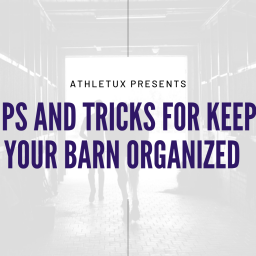
Tips for Securing a Syndicate
Horses are expensive, but syndication is a viable option for professionals that need help carrying the costs associated with their horse. Syndication is worth considering for any level of horse– some owners only want to hold shares of experienced horses, while some are excited by the opportunity to own a future superstar. Regardless of you or your horse’s experience, here are some tips to secure a syndicate.
-
Gather your marketing materials
This would include videos of you riding the horse, a bio and perhaps competition results. Many owners will want to see the horse in person before buying shares, but in order to market your syndicate, you need to have a short advertisement–similar to any horse you are trying to sell.
-
Market the opportunity
Use all of your networking platforms to get the word out. Syndication opportunities need to be featured on your website so that owners that admire your riding/business can be aware of ways that can be involved in your success. Additionally, you will want to post the advertisement you just made to all of your social media platforms. Make sure that these posts are shareable, so friends in the industry are able to let their networks know as well.
-
Decide on the numbers
Before selling any shares of a syndicate, you must decide how many shares there are going to be and the price per share. When setting this price, do not simply take into account the price of the horse. You must also include some of the cost associated with legal fees, vetting, transportation, or anything else that may be associated with the transfer of ownership. In addition to the purchase of a share, owners will have to split an annual maintenance fee to cover the horse’s vet bills, competition fees, feed, board etc.
-
Contact a lawyer and write up an agreement
In order to protect your business and your horse, it is essential that you contact an experienced equine lawyer to help you write a syndication agreement. There are so many challenges/factors that go into owning a horse, and you need to put these in writing. Are shares transferable? What happens if my horse gets injured and cannot compete anymore? What if an owner’s financial situation changes and they cannot pay the annual fee? How is prize money divided up? All of these questions can become serious problems down the road if not written in your contract.















